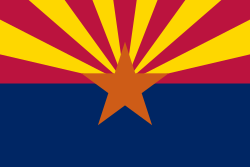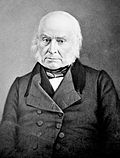
Back Portal:Politik ALS بوابة:السياسة Arabic بوابة:سياسة ARZ Портал:Политика Bulgarian প্রবেশদ্বার:রাজনীতি Bengali/Bangla Portal:Politika BS دەروازە:سیاسەت CKB Portál:Politika Czech Portal:Politik German Portal:Siyaset DIQ
| Main | Topics and categories | Tasks and projects |
The Politics portal
Politics (from Ancient Greek πολιτικά (politiká) 'affairs of the cities') is the set of activities that are associated with making decisions in groups, or other forms of power relations among individuals, such as the distribution of status or resources. The branch of social science that studies politics and government is referred to as political science.
Politics may be used positively in the context of a "political solution" which is compromising and non-violent, or descriptively as "the art or science of government", but the word often also carries a negative connotation. The concept has been defined in various ways, and different approaches have fundamentally differing views on whether it should be used extensively or in a limited way, empirically or normatively, and on whether conflict or co-operation is more essential to it.
A variety of methods are deployed in politics, which include promoting one's own political views among people, negotiation with other political subjects, making laws, and exercising internal and external force, including warfare against adversaries. Politics is exercised on a wide range of social levels, from clans and tribes of traditional societies, through modern local governments, companies and institutions up to sovereign states, to the international level.
In modern states, people often form political parties to represent their ideas. Members of a party often agree to take the same position on many issues and agree to support the same changes to law and the same leaders. An election is usually a competition between different parties.
A political system is a framework which defines acceptable political methods within a society. The history of political thought can be traced back to early antiquity, with seminal works such as Plato's Republic, Aristotle's Politics, Confucius's political manuscripts and Chanakya's Arthashastra. (Full article...)
Selected article
The monarchy of the United Kingdom is a system of government in which a hereditary monarch is the sovereign of the United Kingdom and its overseas territories. The terms British monarch and British monarchy may mean different things in different contexts beyond the United Kingdom. The present monarch is King Charles III, who has reigned since 8 September 2022. The heir apparent is his brother,. They and the Queen's husband and consort, Prince Philip, Duke of Edinburgh, undertake various public duties in accordance with their positions. Elizabeth II is Head of the Commonwealth and also reigns as head of state of 15 other Commonwealth countries. This developed from the former colonial relationship of these countries to Britain, but they are now independent and the monarchy of each is legally distinct.
Featured picture

The resignation letter of U. S. President Richard M. Nixon on August 9, 1974 during the Watergate scandal.
Selected quote
Selected biography
Cosmo Gordon Lang (1864–1945) was an Anglican prelate who served as Archbishop of York and Archbishop of Canterbury. As Archbishop of Canterbury during the abdication crisis of 1936 he took a strong moral stance, and comments he made in a subsequent broadcast were widely condemned as uncharitable towards the departed king. In his early ministry Lang served in slum parishes in Leeds and Portsmouth before his appointment in 1901 as suffragan Bishop of Stepney in London. In 1908 Lang was nominated Archbishop of York, despite his relatively junior status as a suffragan rather than a diocesan bishop. He entered the House of Lords as a Lord Spiritual and caused consternation in traditionalist circles by speaking and voting against the Lords' proposal to reject David Lloyd George's 1909 "People's Budget". This apparent radicalism was not, however, maintained in later years. At the start of World War I, Lang was heavily criticised for a speech in which he spoke sympathetically of the Kaiser. After the war he supported controversial proposals for the revision of the Book of Common Prayer, but after acceding to Canterbury he took no practical steps to resolve this issue. As Archbishop of Canterbury he presided over the 1930 Lambeth Conference, which gave limited church approval to the use of contraception.
Did you know (auto-generated) -

- ... that Rabab Al-Kadhimi was threatened with deportation from Egypt due to the political nature of her poetry?
- ... that Patricia Grace did not intend for her novel Potiki, about the impact of land development on an indigenous community, to be seen as political?
- ... that Iraqi poet Kazim al-Samawi spent more than half his life in political exile and was called "The Sheikh of the Exiles"?
- ... that Pocatello mayor Les Purce was the first African-American political officeholder in Idaho?
- ... that a political action committee paid $132,000 to former First Lady Melania Trump's fashion stylist for strategy consulting?
- ... that Kit Nascimento, a spokesperson for the government of Guyana during the aftermath of Jonestown, disagrees with current proposals to open the former Jonestown site as a tourist attraction?
More did you know...
- ...that the traditional form of government in Tibet from 1642 to 1951 was the Cho-sid-nyi?
- ...that the National Assembly of Azerbaijan was the first secular republican parliament in the Muslim world?
- ...that in world-system theory, sociologists debate whether two world-systems have ever existed during the same period?
- ...that former Republican California State Senator Becky Morgan served on the Board of Trustees of both her alma maters, Stanford University and Cornell University?
- ...that although U.S. President Barack Obama is Christian, high-ranked al-Qaida member Ayman al-Zawahiri has falsely claimed that Obama secretly "pray[s] the prayers of the Jews"?
- ...that on the death of Governor George Madison, Kentucky lieutenant governor Gabriel Slaughter was refused the title of "governor" by a hostile state legislature and was referred to as "acting governor" for the duration of his three-year administration?
In this month
- April 1, 1979 – Iran's government becomes an Islamic Republic by a 98% vote, overthrowing the Shah officially.
- April 9, 1948 – the period known as La Violencia begins with the assassination of Colombian Liberal Party leader Jorge Eliécer Gaitán. For the next ten years Liberals, Communists and Conservatives would fight each other in the conflict.
- April 9, 2003 – Government of Saddam Hussein overthrown by American forces in Iraq.
- April 19, 2006 – Han Myung-sook becomes South Korea's first female Prime Minister.
- April 24, 2005 – Presidential elections in Togo return Faure Gnassingbe to power two months after he was installed by the military following the death of his father, Gnassingbé Eyadéma.
- April 28, 1937 – Saddam Hussein, the President of Iraq was born.
- April 30, 1945 – Adolf Hitler and his wife Eva Braun, commit suicide as the Red Army approached the Führerbunker in Berlin. Karl Dönitz succeeds Hitler as President of Germany; Joseph Goebbels succeeds Hitler as Chancellor of Germany.
News and Current events
- August 11: 4 local government areas in New South Wales, Australia locked down after COVID-19 case
- August 11: Australia: AstraZeneca vaccine access expanded by Victorian government
- August 1: Australia: Victorian lockdown lifted
- July 29: Tunisia's president dismisses prime minister, suspends parliament
- July 25: Australia: Wikinews interviews Reg Kidd, mayor of the City of Orange, about COVID-19 lockdown and local government
- July 23: South Australia enters week-long lockdown to contain COVID-19 Delta variant spread
- July 21: Technological University Dublin senior lecturer Dr Lorcan Sirr speaks to Wikinews on housing market in Ireland
- July 21: Three rural councils in New South Wales, Australia enter 7-day lockdown
- July 21: Australia: Victoria lockdown extended by a week with 85 active cases recorded
- July 15: California governor signs new state budget, eligible Californians to get stimulus payments
Topics and categories
General images
Related portals
Associated Wikimedia
The following Wikimedia Foundation sister projects provide more on this subject:
-
Commons
Free media repository -
Wikibooks
Free textbooks and manuals -
Wikidata
Free knowledge base -
Wikinews
Free-content news -
Wikiquote
Collection of quotations -
Wikisource
Free-content library -
Wikiversity
Free learning tools -
Wiktionary
Dictionary and thesaurus
Sources
More portals
© MMXXIII Rich X Search. We shall prevail. All rights reserved. Rich X Search






















































